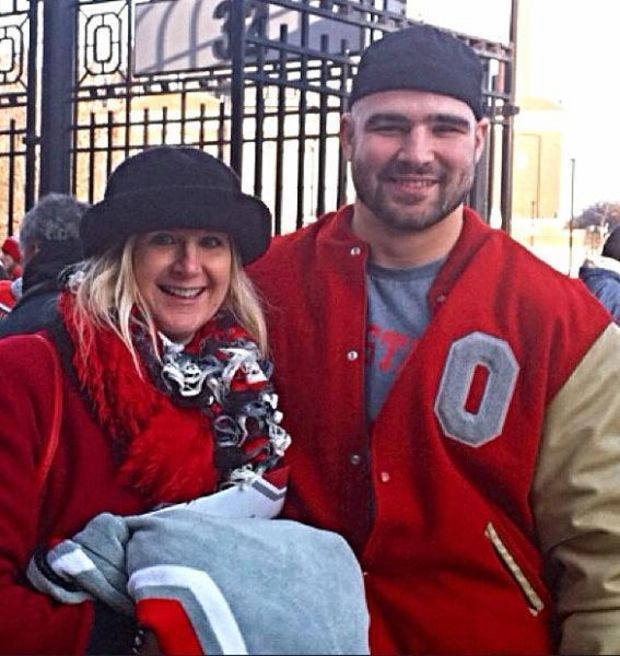When Kosta Karageorge went missing on Nov. 26, his family and friends were worried about him. Karageorge had been a wrestler for The Ohio State University and started just this year as a walk-on senior for the Buckeye’s Big Ten football team. And lately, his family said, he had been experiencing what may have been head trauma warning signs from concussions he’d sustained while playing sports.
Kargeorge, 22, was found dead in a Columbus dumpster on Sunday, Dec. 1, according to several reports. Police have said that he died of an apparent self-inflicted gun wound. A gun was found in the dumpster with him.
His mother reported that he had written a text just before his disappearance that may have been one of several head trauma warning signs Kargeorge was experiencing. The text read, “if I am an embarrassment, but these concussions have my head all f—ed up.”
Although school officials and police are still trying to solve the puzzle that lead to this athletic college senior to take his own life, those around him have been quoted as saying they were concerned about the possible head trauma warning signs he’d already been demonstrating before his disappearance. Loved ones close to athletes who have sustained sports-related concussions may find that they notice changes in their physical and mental states, and these may be head trauma warning signs that something tragic could occur.
5 Head Trauma Warning Signs:
- Changes in Mood: These head trauma warning signs often can be dismissed as a psychological, rather than a physical, condition. But anger, frustration, mood swings, paranoia and depression can be the result of a concussion or a brain injury.
- Changes in Cognition: Although there can be a variety of reasons, such as normal everyday stress and physical conditions, that can cause a person to think unclearly, this can also be one of the head trauma warning signs. It’s important to talk to a doctor if difficulty concentrating, making decisions or analyzing things becomes a concern after a concussion or brain injury.
- Communication Difficulties: Stuttering, problems finding words and issues with understanding speech are among the head trauma warning signs. Because other physical issues can cause these as well, it’s important to discuss communication issues with a doctor following a concussion or brain injury.
- Changes in Physical Wellbeing: People who have had a concussion or brain injury may experience rapid heartbeat, nausea, vision disturbances, pain, ringing in the ears, vertigo and a wide variety of other symptoms. These all can be head trauma warning signs that something more serious may be around the corner, and they are important to discuss with a doctor right away.
- Uncharacteristic Irrational Behavior: Among the most frightening of head trauma warning signs may be a sudden change in behavior that could lead to a tragic outcome. The text that Kosta Karageorge sent to his mother before the football player’s apparent suicide should be taken seriously and evaluated by a medical professional immediately.
Are You Suffering From Complications Following a Sports-Related Head Trauma, Concussion or Brain Injury?
If you or someone you love has had life-altering concussions or other brain injuries as a result of sports activities, call Attorney Group. Attorney Group can evaluate your case and determine if you can receive a monetary compensation for your injuries. If we determine you have a claim, one of our affiliated attorneys can help you protect your rights with no out-of-pocket cost to you. Call Attorney Group today to find out how we can help you.






